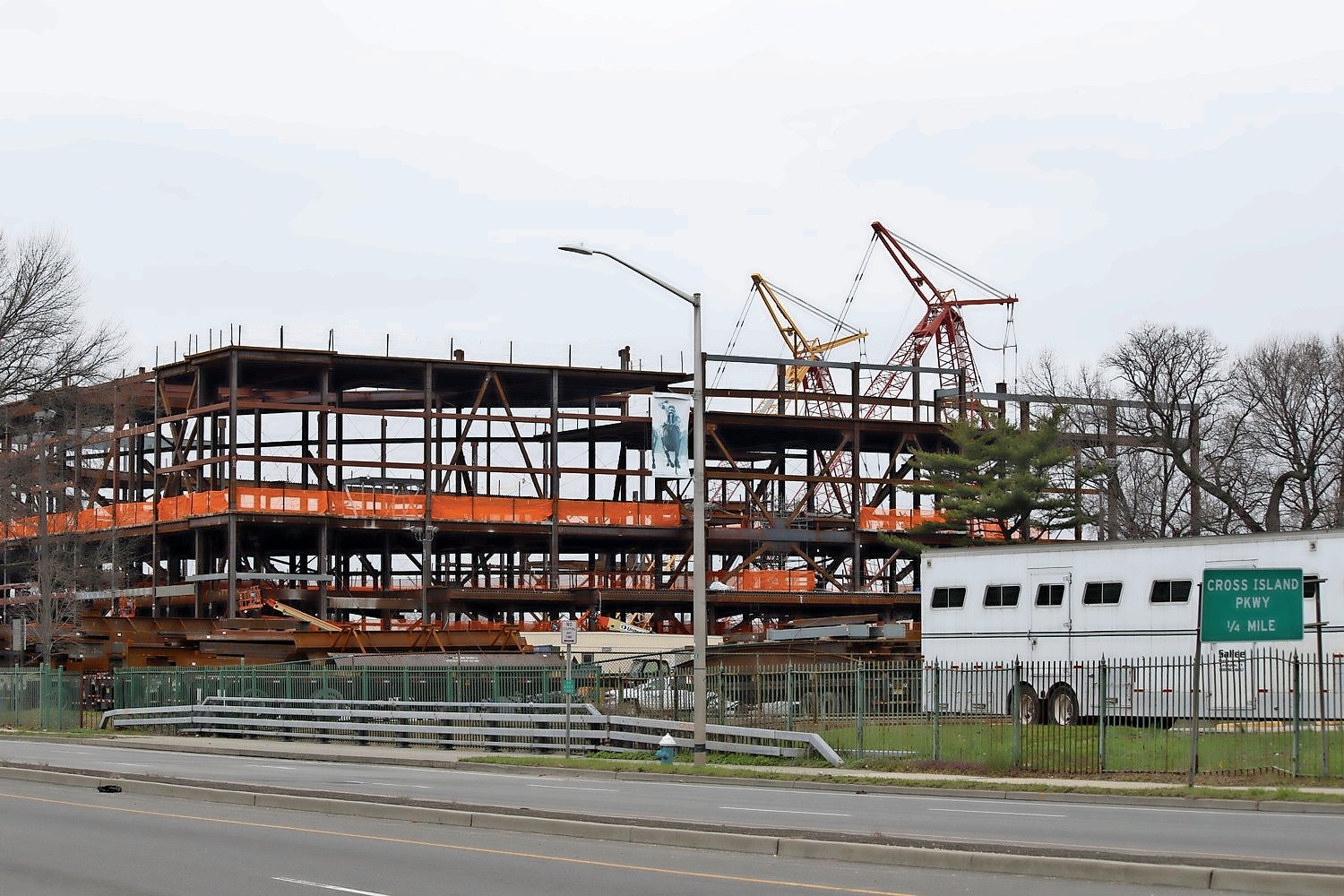Elmont civic leaders to appeal decision on Belmont
Elmont civic leaders plan to appeal a State Supreme Court justice’s decision to allow construction of the $1.3 billion Belmont Park redevelopment project to continue.
They filed a document in the New York State Supreme Court system on June 16, stating their intention to appeal, 27 days after Justice Roy Mahon dismissed their case. “We disagreed with the judge’s ruling,” Aubrey Phillips, vice president of the Parkhurst Civic Association, explained. “We believe we have a very strong case.”
The civic leaders originally filed the lawsuit last Sept. 21, claiming that Belmont Park is public land and thus cannot be sold to a private developer under the state’s Public Trust Doctrine, which states that “people’s trust may not be diminished or infringed without specific authorization by statute by the State Legislature.”
The suit also alleged that state agencies violated the Urban Development Corporation Act, which, civic leaders argue, states that redevelopment should occur only in areas where there is “substantial and persistent unemployment,” and went on to list a number of Elmont residents’ concerns about the redevelopment project — including traffic congestion on the Cross Island Parkway, the plan’s water demands and a proposal to install two 30,000-gallon propane tanks underground to heat the new Islanders arena.
In his 13-page decision, however, Mahon ruled that Empire State Development, the state agency tasked with promoting development in New York state, had adequately addressed each of the group’s concerns. ESD, Mahon wrote, took “into account the factors [it] is accused of disregarding” when studying the project’s effect on traffic, and was “only required to thoroughly analyze the identified relevant areas of environmental concern.”
“It was not required to consider every conceivable environmental impact, mitigating measure or alternative.” Mahon wrote, “and it was not required to reach any particular result.”
He also explained that ESD held a number of community meetings on the project and could thus “rationally determine that local concerns were heard, addressed and acted upon where feasible,” and did not violate the UDC Act because the state agency has “broad authority . . . to override local zoning ordinances and regulations.”
Finally, Mahon noted that residents’ concerns about the proposal to install propane tanks were nullified when National Grid officials ended their moratorium on processing new applications for natural-gas hookups, and ruled that the state did not violate the Public Trust Doctrine because Belmont Park had been privately owned and operated since 1905. It had only recently become state-owned, he explained, with private development explicitly authorized by the State Legislature.
But Phillips disagreed with that principle, pointing to an 1892 U.S. Supreme Court decision that each state has a permanent title to all lands within its borders and holds these lands in a public trust. In the decision — which was made in response to Illinois officials granting the Illinois Railroad Company 3 million acres of shoreline along Lake Michigan for the construction of a north-south railroad, and allowing the company to “enter upon and take possession of, and use … any lands, streams and materials of every kind — Justice Stephen Field ruled that “the state can no more abdicate its trust over property in which the whole people are interested . . . so as to leave them entirely under the use and control of private parties.”
Phillips also previously claimed that much of the state’s evidence contained “lies.” ESD officials, he said, wrote in court documents that they met with an Elmont community group that no longer exists.
Additionally, Phillips noted that Elmont residents are already feeling the effects of the construction. He said water pressure has dropped considerably, despite recent upgrades to the water-pumping station on Elmont Road, and there is iron in the water. The proposal to install propane tanks, meanwhile, has reduced home values, he said, and could place lives at risk.
The payment-in-lieu-of-taxes agreement that the developers received for the project last year, he added, may be affected by decreased attendance if the coronavirus pandemic were to continue. Under the agreement, New York Arena Partners — a consortium comprising the Islanders hockey franchise, the Oak Group and the Wilpon family — is to pay $40 million to various municipalities. An estimated $154 million is to go to the Elmont and Sewanhaka school districts over nearly 50 years, and the state is to earn at least $1 million per year from rent based on attendance. If Arena Partners is unable to make the payments because of the pandemic, however, Phillips said it would take years for the districts to recoup the money.
He said he and other civic leaders filed the statement to appeal “to ensure that we keep the pressure on [the state] to do the right thing by the community” and “mitigate all the critical elements that were brought to their attention.”
The Belmont Park project includes the construction of an 18,000-seat arena for the Islanders, a 250-room hotel, a community center, commercial office space and 350,000 square feet of retail space.
“We are very optimistic,” Phillips said of the application, and “we’ll keep pushing for a resolution that makes sense to the community.”
ESD officials could not be reached for comment as of press time, but previously told the Herald, “This project has gone through a transparent, public process over multiple years, and has adhered to all requirements under state law.”
Elmont civic leaders, meanwhile, were scheduled to discuss their appeal further on June 23, after the Herald went to press.

 44.0°,
Mostly Cloudy
44.0°,
Mostly Cloudy 




